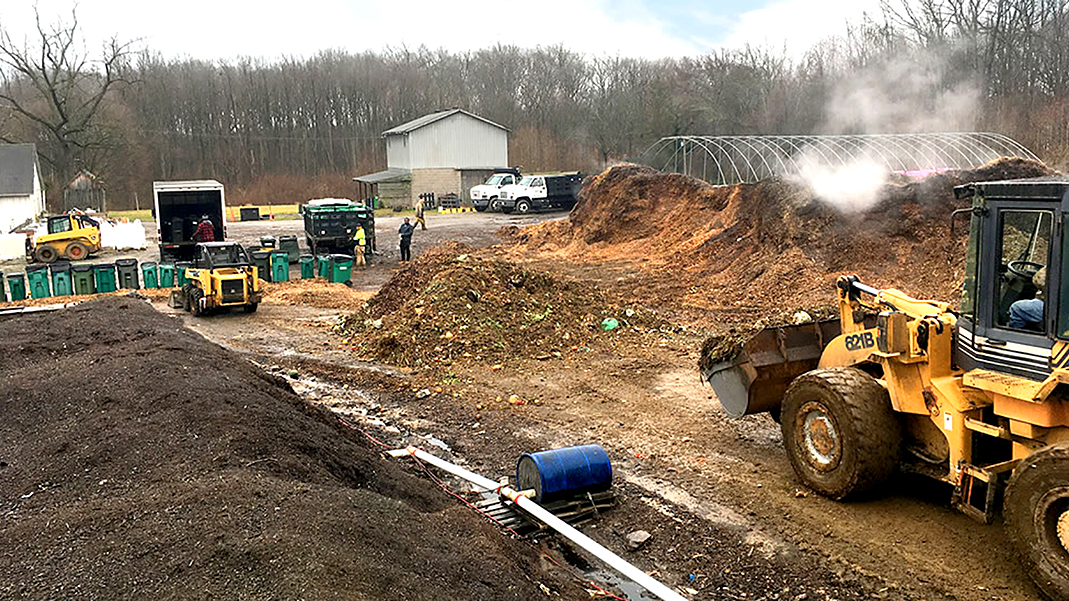Top: Veteran Compost in Aberdeen, MD composts about 20 tons/day of food waste in aerated static piles. Photo courtesy of Veteran Compost
The Maryland General Assembly passed HB 264 in mid-April, which requires entities — including supermarkets, schools and institutions, and food establishments — that generate at least two tons/week of food residuals to divert that material from disposal, starting on January 1, 2023. The threshold drops to at least one ton/week beginning January 1, 2024. Diversion includes source reduction, donation, animal feed, composting and anaerobic digestion. HB 264 is on Maryland Gov. Larry Hogan’s desk. He must take action (sign or veto) within 30 days of its delivery, or the bill becomes law automatically.
The food residual diversion requirements only apply if the food waste is generated “at a location that is within a 30-mile radius of an organics recycling facility that has the capacity to, is willing to, accept and process all of the person’s food residuals for recycling, and is willing to enter into a contract to accept and process the person’s food residuals,” states HB 264.
The Maryland Department of the Environment (MDE) estimated that 927,926 tons of food waste are generated annually in the state; 15.5% was recycled in 2019. The remainder is disposed in landfills or incinerated. MDE reports that 20 composting facilities are operating in the state. Out of the 20 facilities, 14 compost only yard trimmings, 5 compost a combination of food scraps, yard trimmings, manure etc., and one composts hay, straw, and manure.
The Maryland General Assembly also passed HB 0248, which prevents condominiums and homeowners associations from “prohibiting or unreasonably restricting a unit owner from contracting with a private entity to collect organic waste materials for composting, and prohibiting or unreasonably restricting a lot owner from composting organic waste materials for the lot owner’s personal or household use as long as the lot owner owns or has the right to exclusive use of the composting area; etc.” This legislation helps enable residents to utilize a private subscription service for collection of their food scraps, or to compost at home.













